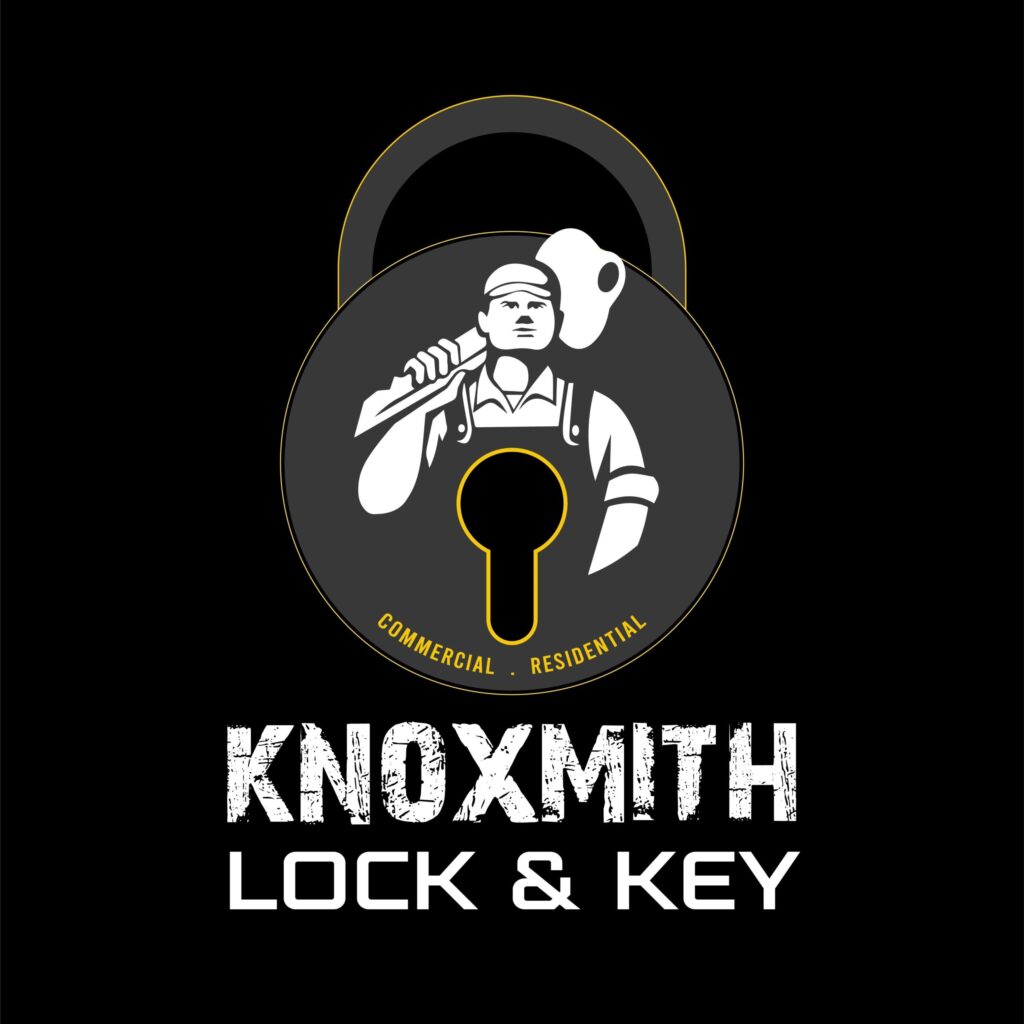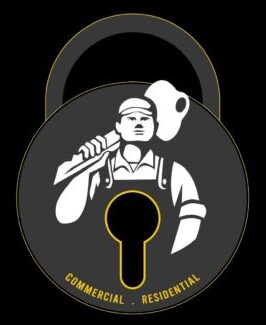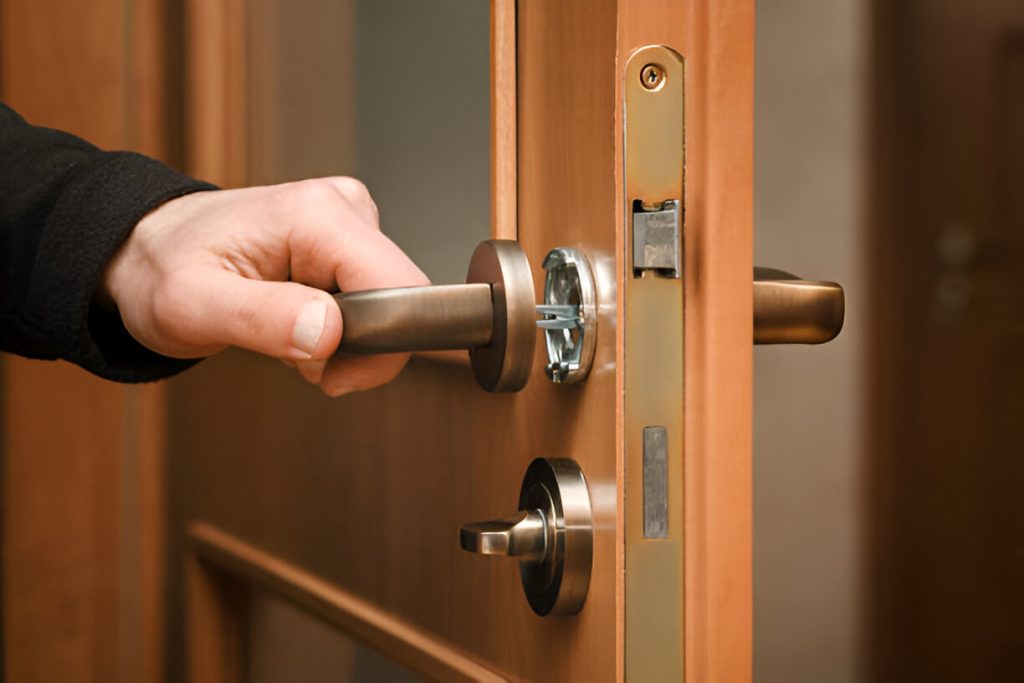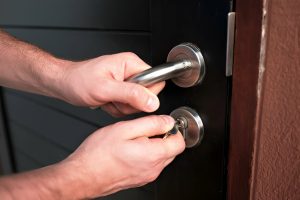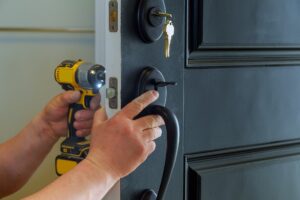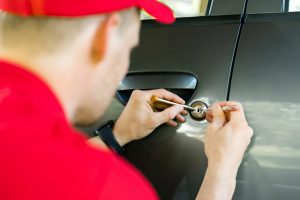We all rely on locks, whether for protecting gym bags, securing a school locker, or safeguarding business assets. The problem? Most people use combination locks daily without really knowing how they function. When a lock jams, codes are forgotten, or the mechanism feels weak, it quickly becomes frustrating.
This creates anxiety over security, especially when the lock protects something valuable. The good news? By understanding how combination locks work, and the different combination lock types available, you can not only keep your belongings safe but also troubleshoot common issues like resetting, cleaning, or arranging combination lock repair when needed.
In this guide, we’ll break down the inner workings of mechanical combination locks, modern digital combination locks, and specialized models like safe combination locks and commercial combination locks. We’ll also share expert tips on combination lock installation and maintenance to ensure your locks stay reliable.
What Is a Combination Lock?
A combination lock is a keyless security device that uses numbers or symbols to align an internal mechanism. Instead of carrying a physical key, users enter the correct sequence to open the lock.
Common places you’ll see them include:
- School and gym lockers
- Travel luggage
- Office or commercial storage units
- High-security safes
The beauty of a combination lock is its balance of convenience and security.
How Do Combination Locks Work? The Basic Principle
At the heart of every combination lock is a simple mechanism:
- A spindle or shaft connects the dial or number wheels to internal discs or cams.
- Each disc contains a notch.
- When the correct code is dialed, all notches align.
- This alignment releases the locking bar or shackle, allowing the lock to open.
Think of it like a puzzle; when every piece aligns, the lock disengages.
Combination Lock Types
Combination locks come in a variety of designs, each offering different levels of convenience, security, and durability. Whether you’re protecting personal belongings, securing business assets, or safeguarding valuables in a safe, choosing the right type makes all the difference. Below are the most common combination lock types you’ll encounter:
1. Mechanical Combination Locks
These are the traditional locks most people picture when they think of a locker or safe. They work with a rotating dial or numbered wheels that must be turned in a precise sequence.
- Durable and Reliable: Known to last for decades with proper care.
- Widely Used: Common in schools, lockers, and safes.
- No Batteries Required: Fully mechanical, so no power failures.
2. Digital Combination Locks
Modern and user-friendly, digital locks replace the dial with a keypad.
- Quick Access: Entering numbers is faster than rotating dials.
- Resettable Codes: Easily change your combination when needed.
- Advanced Features: Some models include alarms or smart connectivity.
3. Safe Combination Locks
Built for maximum security, these locks protect valuables such as jewelry, documents, and cash.
- Both Mechanical & Digital Models: Users can choose based on preference.
- Reinforced Design: Many safes include fireproof or drill-resistant materials.
- Layered Protection: Often combined with other locking systems.
4. Commercial Combination Locks
These heavy-duty locks are designed for businesses, gyms, and schools with frequent users.
- High-Traffic Ready: Built from strong materials to withstand repeated use.
- Override Options: Admins can reset or access when needed.
- Ideal for Shared Spaces: Ensures security while still being convenient.
Security Features of Combination Locks
Combination locks are trusted for good reason. Key features include:
- Keyless Convenience: No risk of losing a key.
- Custom Codes: Many models allow resetting for personal use.
- Durability: Hardened steel and tamper-proof design.
- Anti-Shim Technology: Prevents common bypass attempts.
Common Problems and Combination Lock Repair Tips
Even the best locks encounter issues. Here’s how to handle them:
- Forgotten Combination: Check if the lock has a reset option or contact the manufacturer.
- Stuck Dial or Wheels: Apply lubricant to ease movement.
- Worn Numbers: Replace the lock or upgrade to a sturdier model.
- Security Concerns: If tampered, schedule combination lock repair or replacement immediately.
Expert Tips for Using and Maintaining Combination Locks
Choose a Strong Code
- Avoid easy sequences like “1234” or “0000.”
- Use unique numbers that aren’t tied to birthdays or addresses.
Keep the Code Secure
- Share only with trusted individuals.
- Rotate or scramble numbers after locking.
Perform Regular Maintenance
- Clean and lubricate moving parts.
- If installed in outdoor environments, protect from rust and weather.
Best Practices for Combination Lock Installation & Setup
Whether you’re setting up safe combination locks at home or commercial combination locks at your workplace, proper combination lock installation is crucial.
- Measure properly: Ensure the lock fits the door, locker, or safe.
- Align correctly: Incorrect alignment may cause malfunctions.
- Test multiple times: Before relying on it, test your lock thoroughly.
- Professional help: For advanced locks, hire a locksmith or technician.
Frequently Asked Questions
Q1: How do you unlock a combination lock?
A: Turn the dial or set the wheels to the correct sequence of numbers, and the lock will open.
Q2: How does a 3-dial combination lock work?
A: Each dial rotates an internal wheel; aligning all three notches releases the locking bar.
Q3: What is the mechanism of a combination lock?
A: It uses discs, cams, or wheels with notches that must align correctly to release the shackle.
Q4: How do I reset a combination lock?
A: Open the lock, press or move the reset lever/button, set a new code, then return the lever to its original position.
Q5: Are digital combination locks safer than mechanical ones?
A: Both have pros. Digital combination locks are faster and more convenient, while mechanical combination locks are highly durable.
Q6: Can a locksmith open a combination lock?
A: Yes, a locksmith can open or reset a combination lock using specialized tools and techniques without damaging it.
Q7: How long do combination locks last?
A: With proper care and maintenance, quality combination locks can last 10–20 years or more.
Conclusion: Choosing the Right Combination Lock for You
Combination locks have stood the test of time, evolving from simple mechanical combination locks to modern digital combination locks with advanced features. From safe combination locks at home to commercial combination locks in businesses, their versatility makes them an excellent security solution.
By understanding how they work, applying proper combination lock installation, and knowing when to arrange combination lock repair, you’ll ensure maximum security and reliability.
Get Expert Help with Combination Locks
Looking to upgrade your security? Whether you need a personal lock for daily use or heavy-duty commercial combination locks, investing in the right model is the first step toward peace of mind. Always choose quality, follow proper installation, and maintain your lock for years of protection.
